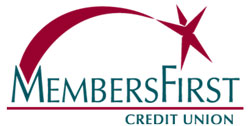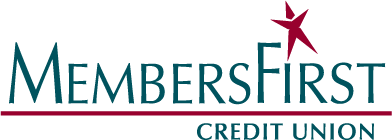(Access your Personal Expense Reduction Worksheet below.)
With all the change happening in the world right now, it’s easy to fall into a panic and wonder if there are some concrete steps you should be taking to maintain your personal finances. Luckily, your credit union is prepared and ready to help, continuing to offer financial support, robust online and mobile services and enhanced member services over the phone.
Still, it’s natural to become concerned about meeting financial obligations, especially if you fear your income may be reduced as it has for many Americans. How do you determine which bills are a priority?
In a recent article on clark.com, Clark Howard, a money expert and big advocate of credit unions, said, “In medicine it’s called triage. It’s exactly what’s happening in the hospitals right now as they decide who to treat when or who not to treat. You have to look at your bills the same way. You’ve got to think about what you must have.”
Here are some practical tips MembersFirst and Clark suggest to help you maintain financial stability and peace of mind if you find your income has changed or will change during this time (or in any situation).
Don’t panic.
Whether you’re an investor with a robust portfolio or simply worried about your retirement accounts, it may, at first, seem like a smart idea to sell out just to spare investments from further loss. However, experts say otherwise. Remember: most sectors of the economy will recover quickly. For example, consumers may not be purchasing shoes or cruise tickets now, but they will likely do so when it is safe to shop and travel again.
Rework your budget.
If you find your income has changed due to a layoff or reduction in income, it’s important to reevaluate and create a new budget based on your new income. You can use this free template to help list and tally your total monthly financial obligations.
For example, according to Clark, the top five financial obligations to prioritize are:
Food
While a bill may not appear in your mailbox each month for groceries, it’s an essential part of your finances. Before moving on to other bills, sit down by yourself or with your family and create simple meal plans. Commit to purchasing groceries based upon what your family needs. Pay attention to sale items and BOGO deals. You will be surprised the meals you can create even on a limited budget.
Housing
A roof over our heads is an essential need. If you have a mortgage or rent payment and can afford your payment, it’s important you continue to make those payments. However, for some, this may not be possible. In these cases:
Homeowners
As related to the COVID-19 pandemic, there has been some federal mandating regarding a delay of 60 days for beginning the process of foreclosures and evictions due to nonpayment. Get in touch with your mortgage company to discuss payment options which could include deferments while you work to get back on track.
Renters
Whether rent is owed to an individual or a property management firm, it’s important to contact them immediately if you feel you may be unable to make your payment. If they are willing, it’s possible a plan or payment arrangement can be made. Rental policies are always changing; keep an eye on credible news sources for information on rental assistance.
Transportation
To follow housing, most individuals should focus on maintaining vehicle payments. As most of the workforce has a commute to work, it’s essential to have access to a vehicle. If you’re able to contribute to your car payment, you should. However, if after taking care of food and housing expenses you find yourself unable to make your car payment, it’s important you talk with your lender about making payment arrangements. While most lenders do not want your vehicle back, one big risk of not communicating with your lender is repossession, so be sure to maintain contact while you work your way back to financial health.
Utilities
Its true many states have recently discouraged shutoffs of electricity and natural gas due to non-payment. While there are not many standards in place at the national level for those services, many local governments have their own policies in place regarding the suspension of water service shutoffs to aid residents during this time.
If after contributing to food, housing and transportation costs you find you cannot make your utility payments, be sure to contact each service provider and see how you can work together. Some companies are offering free service or reduced fees for lesser services, like smaller internet and phone plans.
Unsecured Debt
Although unsecured debts, like credit cards and personal loans fall last in this category, it’s important to remember the long-term negative affect a non-payment could have on your credit. If at all possible, it’s important to continue to make these payments when and where you can. Call your creditors to see how you can work together to keep financial strain to a minimum.
You may have noticed a trend: keeping an open line of communication with utility companies and creditors is essential. Some companies, like MembersFirst, are willing to listen to your concerns and work with you. After all, we are people helping people, with common goals and concerns.
MembersFirst members needing assistance navigating online services or those that have questions about meeting financial obligations can call 404-978-0080 or 912-352-2902. We are prepared and ready to help.
Source: https://clark.com/personal-finance-credit/how-to-prioritize-bills/


